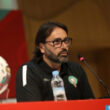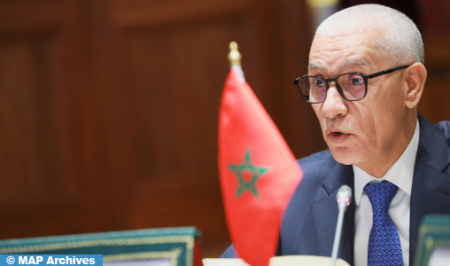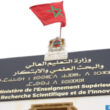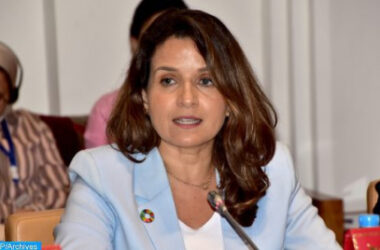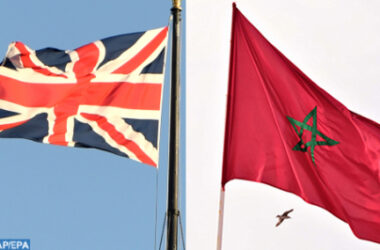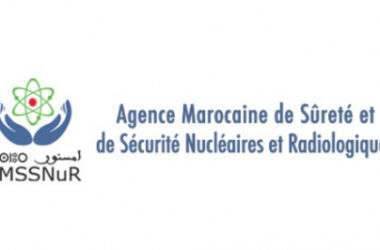“On the ground of reality, this has taken shape in the Kingdom’s huge investments in a number of countries in the light of win-win logic. Hence, 60% of the Moroccan investments abroad are directed towards Africa,” Talbi Alami said in an address at the 11th Summit of the African Parliaments’ speakers, taking place at the headquarters of the Pan-African Parliament (PAP) in Midrand, South Africa.
The African farm houses, in addition to the AAA Initiative, launched by HM King Mohamed VI, with a number of African brothers, during the COP 22 summit held at Marrakech in 2016, represent some examples of wealth producing, and poverty deflecting cooperation. The purpose here is to reduce the African fragility and its agriculture in the face of climatic disequilibria, and the promotion of some agricultural project in a number of African countries, he added.
Having at its disposal some advanced expertise in several sectors such as agriculture, sea fishing, water resource mobilization, renewable energies, health care generalization, fighting epidemics, and food security, Morocco is permanently ready to continue its partnership with its brothers in Africa. It does this on the basis of the belief of common gain and interest, and on the basis of the respect of the brothers’ choices, institutions, sovereignty and territorial integrity. This it also does on the basis of modesty and interchangeable profit, Tabli Alami stated.
In the context of crises succession, of fierce competition over resources, and sharp rise in needs for resources, “we need to know as African Parliamentarians, and as African elites, that we are at the crossroad of some decisive mutations,” he pointed out. “Accordingly, we need to consider – in the right way – our means and resources, just as we need to work – hand in hand – with the same collective African spirit which had marked the period of struggle for national independence among all the African countries.”
“The purpose for this is to build a new Africa which will rise from the ruins caused by political scissions, resource crises and scarcity. As institutions and actors, we need – first of all – to work on projects and policies which will help Africa take advantage of its resources,” Talbi Alami explained.
In that regard, the Lower House Speaker quoted the historical address of HM King Mohammed VI before the 28th Summit of the African leaders on January 31st 2017: “the time has come for Africa to profit from its riches. After decades of looting the resources of the African lands, it is now necessary to create a new period of prosperity.”
“This Royal invitation, five years after its having been launched, still has the same timeliness in the present international context. And this may be grounded on many considerations,” he observed, adding that the Continent has 60% of the world cultivable lands.
“Doubtless, the optimal, modern and sustainable exploitation of these lands will provide food for the inhabitants of the Continent and for a huge part of the world population.”
Talbi Alami also recalled that Africa abounds in fishery resources with some 13 million km2 of sea depth, and 6.5 million Km2 of African continental shelf which overflow with some huge resources. “This way, our countries will be able to develop a sustainable agriculture, thanks to the huge water resources available in many of our countries, provided that the said resources be rationally mobilized, soundly and diligently utilized,” he said.
The Lower House Speaker underlined that the African Union was right and forward looking enough when choosing the year 2022 to be a year of “nutrition and capacity building for the Continent in the field of food security, and in the consolidation of food agriculture.”
“Actually, the climatic phenomena which we went through, particularly during the year 2022, and notably the rise of temperature degrees, do presage some negative, and extremely dangerous, climate changes and disequilibria,” he warned.
Stressing that the African Continent has suffered for so long a time from the scarcity of health services, from the acute water shortage and from drought, Talbi Alami noted that Africa is, unfortunately, paying the price of Gas emissions without cutting the fruits of industrialization.
“Even more, Africa’s contribution to those emissions does not exceed 4%, which leads to the deduction that Africa is much more a victim, than a victimizer,” he deplored, adding that this victim status is due to some international policies, the elaboration of which Africa has never contributed to.”
Talbi Alami stressed the need for a cooperation system between the African countries. “Medical production units must be created, and South – South cooperation must be encouraged. This will, hopefully, bring back the African skills and brains, and boost scientific research and dynamic to the African soil,” he said.
“As parliamentarians, we need to plead, internationally, for this purpose ; we must secure medicines for all, and lift off all the barricades which stand in the way of creating an independent African pharmaceutical industry, particularly patents which are used as a means for the perpetuation and justification of monopolies,” the Speaker suggested.
“As parliamentarians, we must also plea for the transfer of technology into Africa, and work for facilitating the return of African brains to their homeland,” he said.
Most certainly, it will be possibly for the African institutions and agencies that have been created to that effect to constitute a framework for the coordination of the results reached through this parliamentary plea, and through the relating continental policies, Talbi Alami concluded.




